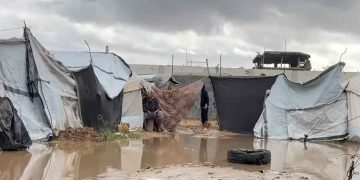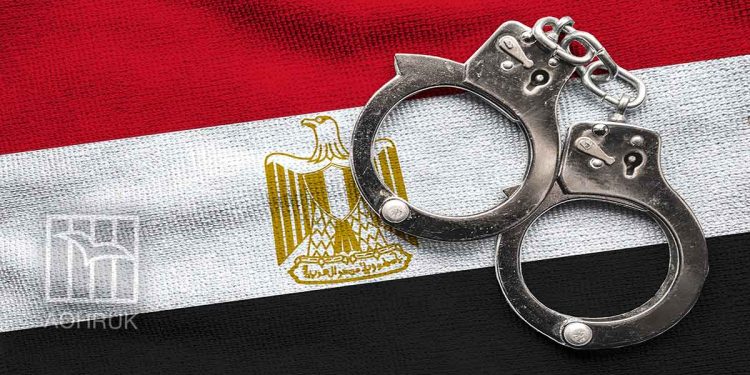Families of Egyptian detainees, including journalist wives, voiced grievances regarding the intensification of inspection campaigns, restrictions on family visits, and thorough searches of the detainees’ detention chambers at Badr 3 prison.
The wife of detained journalist Ahmed Sabea asked on her Facebook account: “What is happening in Badr 3 prison?” In response to her inquiry, a few of the detainees’ spouses revealed that in addition to the mistreatment of both visitors and detainees, the violations persist during visits, preventing food, medication, and clothing for numerous detainees and even prohibiting the visit itself. Some of the spouses even hinted that some of the detainees are threatening to go on a hunger strike in protest of the violations.
In light of the insistence of prison security and national security in Badr prison on committing crimes that embitter their lives and make them feel “humiliated and insulted,” according to the description of one of the detainees’ wives, the families of the inmates in Badr 3 prison expressed their desire to raise their crises and daily suffering through newspapers and websites, and to inform human rights activists and those interested in the detainees’ file about the extent of their tragedies.
Approximately 1,500 prisoners are housed in Badr Prison; two of the most well-known victims of torture and abuse, whose family reported their complaints, are Drs. Abdel Moneim Aboul Fotouh and Mohamed El-Beltagy.
In the midst of a propaganda frenzy supporting government claims about implementing a new strategy that ensures the provision of suitable conditions for prisoners, the Badr Prison Complex was opened at the end of 2021 in the Badr area in the Eastern Desert close to the New Administrative Capital. All of these claims, however, have been refuted by the human rights abuses that the Badr detainees endure.
Leaks of medical negligence from behind the bars of Badr prisons are almost constant, despite the complex housing three rehabilitation centers, a medical center with 175 beds, two operating rooms, a catheterization room, eighteen intensive care rooms, eleven outpatient clinics, and four kidney dialysis units.
Detainees in Badr 3 prison wrote letters and complaints that were leaked on March 11. The letters stated that “we are in a new Scorpion prison,” and that “these are the same policies… The prison conditions are very bad… even worse than Scorpion.”
They verified the existence of incredibly cruel prison administration practices that wreak havoc on the mental and physical well-being of inmates.
It is important to remember that “Prisoners deprived of their liberty shall be treated with humanity and with respect for the inherent dignity of the human person,” according to the International Covenant on Civil and Political Rights.




























